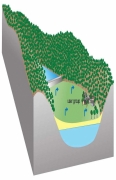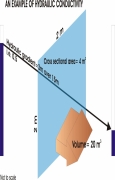/regions/india
India
Planning Commission solicits your views and suggestions on the "Twelfth Five Year Plan" approach paper
Posted on 04 Sep, 2010 04:58 PMStand Up Take Action 2010
Posted on 03 Sep, 2010 04:41 PMWater is a resource without which nothing would survive on this planet.
Villgro Wantrapreneur 2010 - For social entrepreneurs
Posted on 01 Sep, 2010 09:58 PMAre you a Social entreprenur having a focus in Agriculture, Water, Energy?
Do you have an innovative product/ service or process?
Have you been in operation for more than 6 months?
Apply now to Wantrapreneur by visiting http://www.villgro.org/wantrapreneur/
Winners get a cash prize upto 1.5 lakhs and get a chance to get incubated by Villgro.
Water Jobs via DevNetJobsIndia.org dated September 01, 2010
Posted on 01 Sep, 2010 05:17 PMContent Courtesy: DevNetJobsIndia
- Preparation of Project Implementation Plan for Jalanidhi II
Kerala Rural Water Supply & Sanitation Agency
Inspiring progress: Learning from Exnora Green Pammal's solid waste management partnerships in four localities
Posted on 01 Sep, 2010 02:16 PMThis booklet by Exnora Green Pammal (EGP) begins by highlighting the grave situation in relation to solid waste management in the country and the steps undertaken by the government to tackle this issue. The document presents a review of the efforts undertaken by EGP, an NGO based in Chennai, which has been implementing solid waste management projects with a variety of local bodies in accordance with the government’s rules.
India’s solid waste crisis is undermining the nation’s efforts to improve public health, protect the environment and stop climate change. India produces a staggering amount of municipal solid waste every day and the rate of production is expected to climb steadily as the nation becomes more populated, urbanised and economically developed.
Although the Indian government has enacted rules for management and handling of municipal solid waste, the results as per the year 2010 indicate that most localities have not fully complied with the rules and the situation has found to be getting worse day by day. Widespread, prolonged noncompliance with the rules and the rapid, highly-visible environmental degradation has led to calls for a changes in the nation’s waste management policy.
Community organisation in groundwater management – A presentation by ACWADAM
Posted on 27 Aug, 2010 04:01 PM This presentation by ACWADAM on community organization in groundwater management deals with the processes involved in people’s mobilization and participation. The requisites of groundwater management include: resource enhancement, demand management, equitable distribution, institutional mechanism and controlling of free riding. It deals with groundwater management at a local scale when compared to aquifer management.
This presentation by ACWADAM on community organization in groundwater management deals with the processes involved in people’s mobilization and participation. The requisites of groundwater management include: resource enhancement, demand management, equitable distribution, institutional mechanism and controlling of free riding. It deals with groundwater management at a local scale when compared to aquifer management.
Aquifer management involves:
- Identification of aquifer on the basis of geology;
- Identification of recharge and discharge areas;
- Assessment of aquifer capacity and yield through aquifer mapping;
- Protection of recharge area and increasing the groundwater level through artificial recharge in recharge area (based on the geology);
- Treating groundwater as a common property resource;
- Encouraging community use of groundwater and restricting individual use;
- Putting in place an institutional mechanism and legal back up for community groundwater management;
- Awareness generation regarding groundwater and science of hydrogeology.
Hydraulic conductivity: The ability of the rock material to allow the flow of groundwater – A presentation by ACWADAM
Posted on 27 Aug, 2010 08:10 AM This presentation by ACWADAM on hydraulic conductivity deals with the hydrologic properties of rocks that signify the status of a rock as a good or poor aquifer. The status of a rock with regard to groundwater occurrence and movement is decided by its porosity (specific yield, more practically) and its hydraulic conductivity. These properties decide whether a rock can store and transmit groundwater.
This presentation by ACWADAM on hydraulic conductivity deals with the hydrologic properties of rocks that signify the status of a rock as a good or poor aquifer. The status of a rock with regard to groundwater occurrence and movement is decided by its porosity (specific yield, more practically) and its hydraulic conductivity. These properties decide whether a rock can store and transmit groundwater.
Hydraulic conductivity is also commonly called as permeability of the rock or rock material and is its ability to allow the flow of groundwater through it. A rock with good hydraulic conductivity allows groundwater to easily flow through it.
The presentation describes Darcy’s Apparatus, which comprises of a glass cylinder filled with porous sand. The glass cylinder with the sand bed had an inlet for inflow of water and an outlet for outflow of water. Two vertical glass tubes (manometers) are fitted in the sand tube placed at a fixed distance from each other to measure the respective levels (hydraulic heads).
Karst Hydrogeology – A presentation by ACWADAM
Posted on 27 Aug, 2010 12:42 AMThis presentation by ACWADAM deals with Karst hydrogeology, a term used to denote the topography over limestones, dolomites or gypsum rich rocks where there are sinkholes, caverns and lack of surface streams. Karst mainly refers to carbonate rocks: Limestones (CaCO3) or Dolomites (MgCa[CO]).
The formation of carbonate rocks can be traced to physical and chemical deposition. Physical deposition is clastic in nature formed by deposition of particles carried in suspension. It is marked by higher primary porosity and low secondary porosity. Chemical deposition is in the form of precipitate formed by deposition of particles from solution. Contrary to physical deposition it is marked by low primary porosity and high secondary porosity.

Points of groundwater discharge: Types of springs – A presentation by ACWADAM
Posted on 26 Aug, 2010 08:52 PMThis presentation by ACWADAM deals with springs, their characteristics and types. Springs are indicated by locations or points on the ground surface, where water from beneath the ground emerges on to the surface. A common example is of an overflowing unconfined aquifer.
Some of the characteristics of springs are:
- Discharge from spring may be constant or variable.
- Springs can be perennial or seasonal.
- Discharge from a spring may vary between from a trickle to about 100 cum per second.
- Difficulty in access.
- Variation in discharge.
- Temperature of spring water may vary from mean atmospheric temperature to lower or higher, even boiling temperatures. Hot quality water springs are common to many parts of the world.

Water Jobs via DevNetJobsIndia.org dated August 25, 2010
Posted on 25 Aug, 2010 04:13 PMContent Courtesy: DevNetJobsIndia
- Technical Officer
WaterAid India
Location: Bhubaneshwar
Last Date: September 5, 2010
